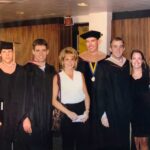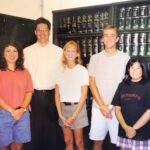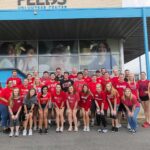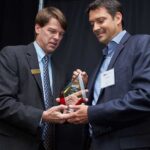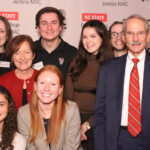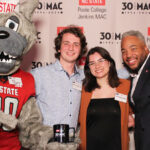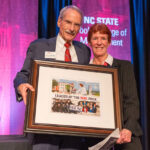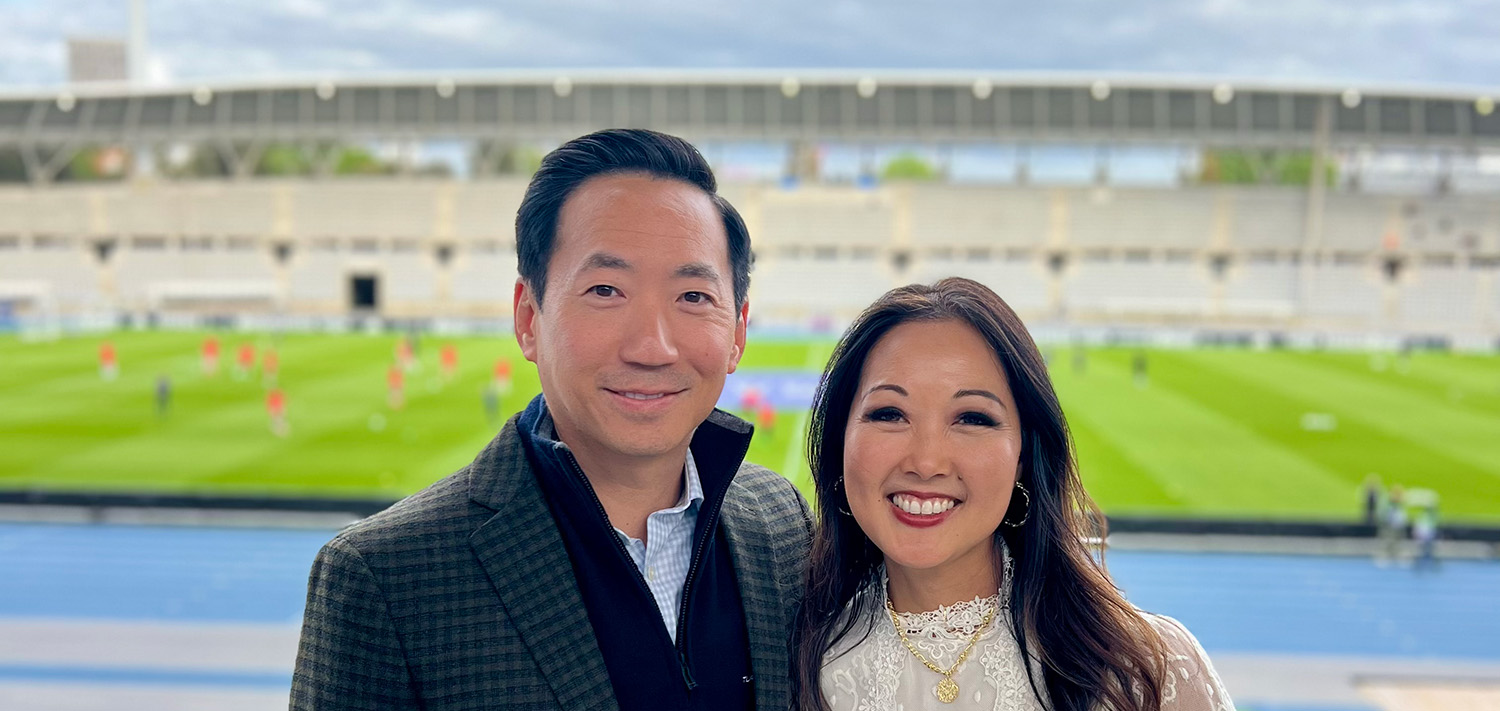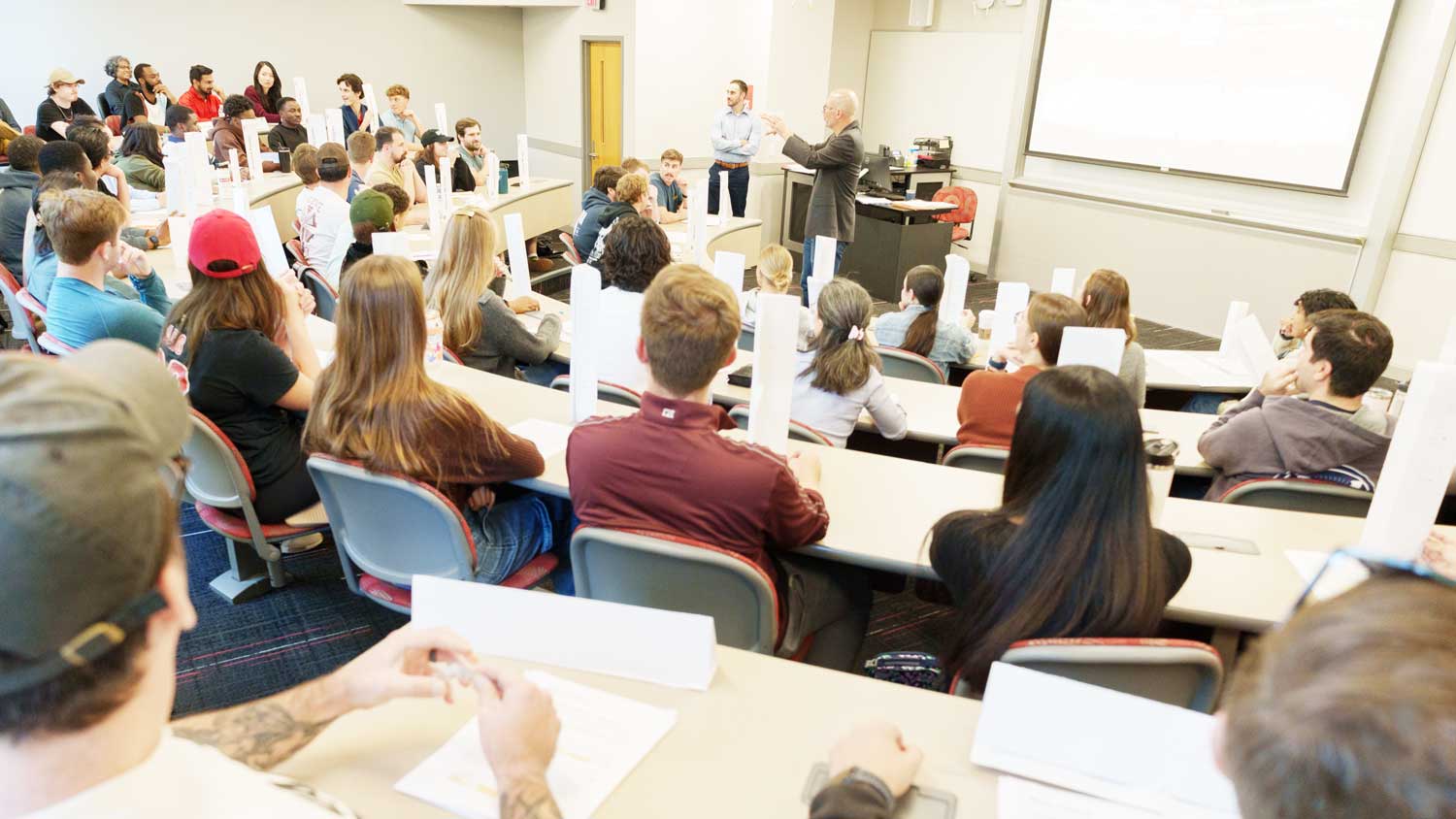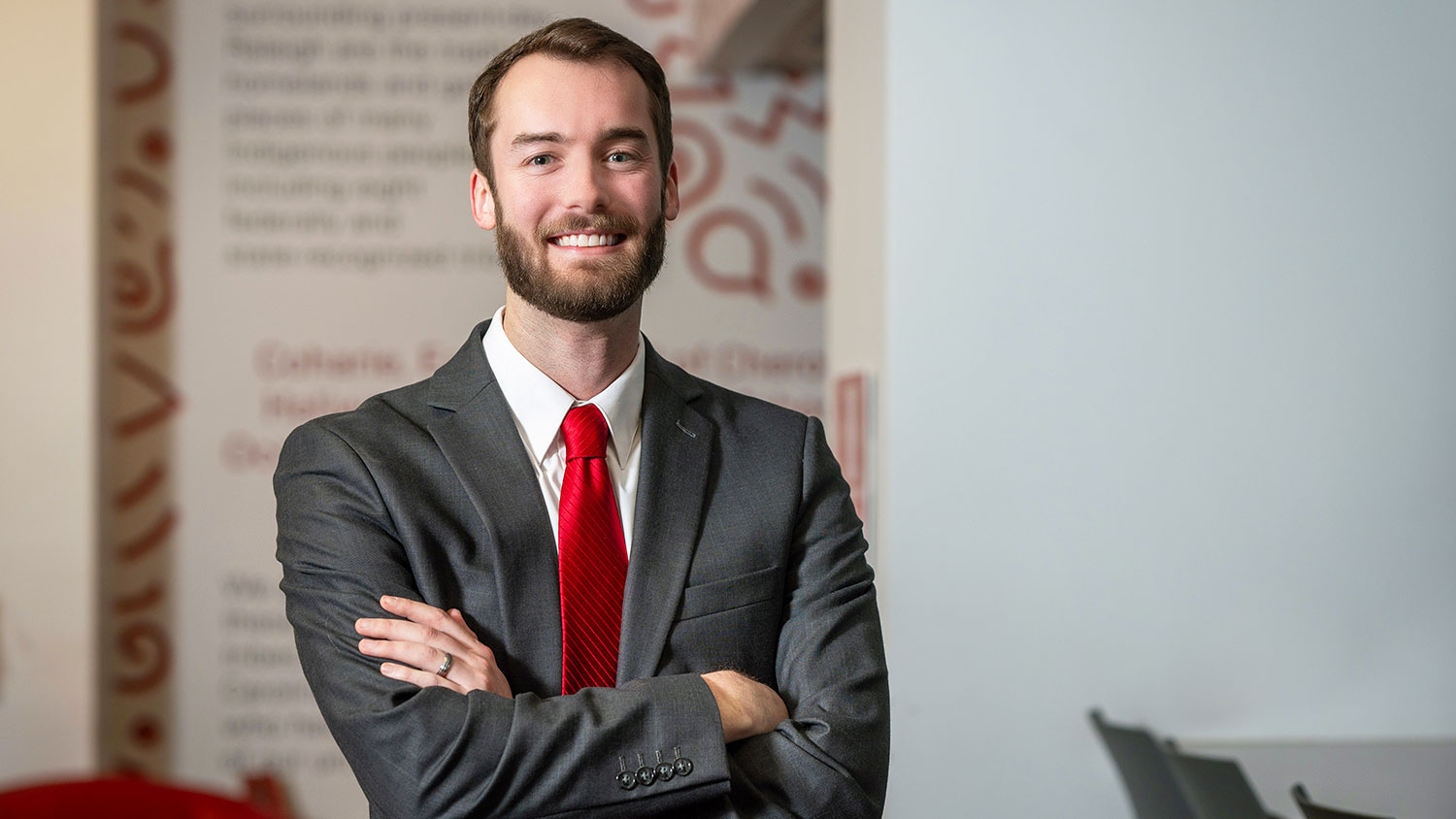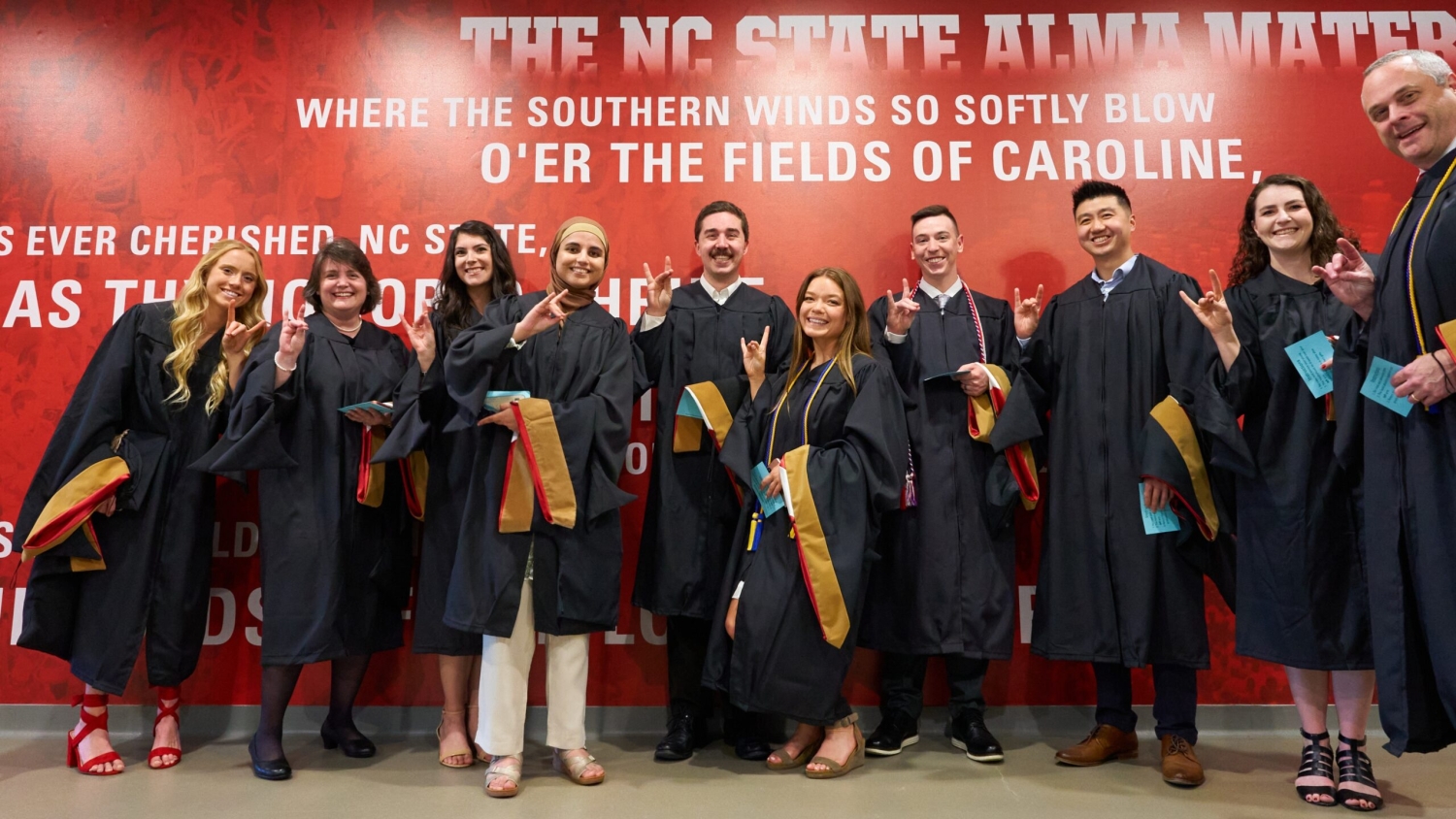30 Years and (Ac)Counting
The Jenkins MAC Program’s anniversary celebrates a legacy of impact and innovation — with excitement for the future.
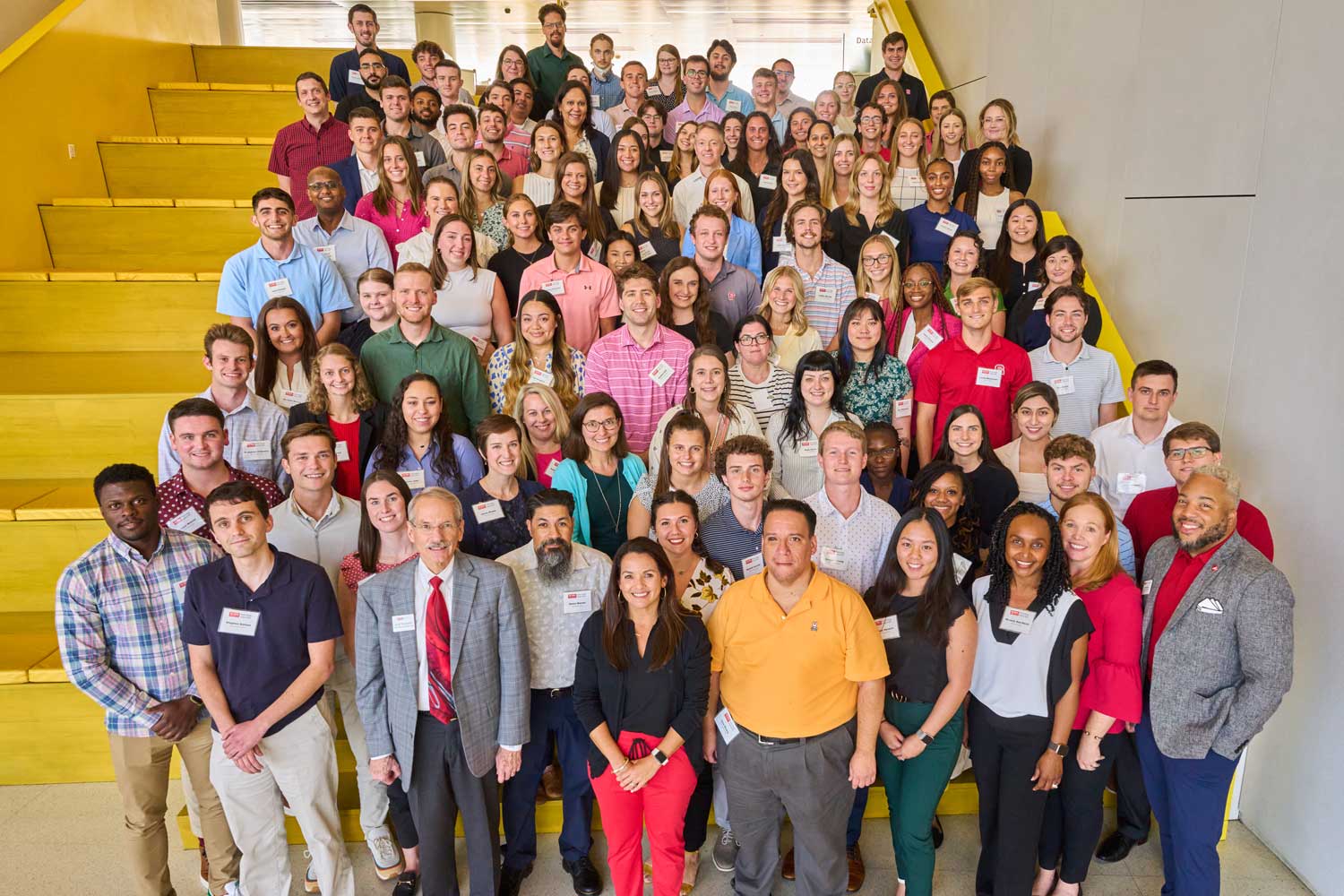
When Jenkins Master of Accounting program director Scott Showalter calls the MAC community “a family for life,” he means it. And now, 30 years after the program’s launch at Poole College, it’s a big family.
How big? About 2,550 alumni — starting with 36 students in the inaugural 1995 graduation.
Throughout all of the program’s broad impacts and highlights since its inception in 1994, the tight-knit MAC community, for online and on-campus students, is key. That feature surfaces quickly in conversations with Showalter, students, alumni and faculty.
“One thing that makes us stand out is that you really are joining a family when you come into our MAC program,” Showalter says. “We don’t let students get lost. We’re with them for the whole journey.”
“One thing that makes us stand out is that you really are joining a family when you come into our MAC program.”
–Scott Showalter
Kathy Krawczyk, MAC director from 2004 to 2018, has been a program leader for its entire journey. She cites the program’s first national ranking, in 2005 — No. 23 in the Public Accounting Report among U.S. graduate accounting programs — as an early turning point.
“That brought us to a lot of people’s minds who wouldn’t have thought of us,” Krawczyk, still a MAC professor, says. “Many people didn’t realize that NC State, which they considered an engineering and science school, had a business school or an accounting program.”
Rankings can have an influence on students and employers. “That’s a very positive reflection on Poole. The MAC program is considered one of the gems of the college from that perspective,” Showalter says.
That gem continues to earn national rankings, including most recently for its online program, which has helped nearly double enrollment since its establishment in 2019. This fall’s projected enrollment will be the largest, with a total of 180 students online and on campus.
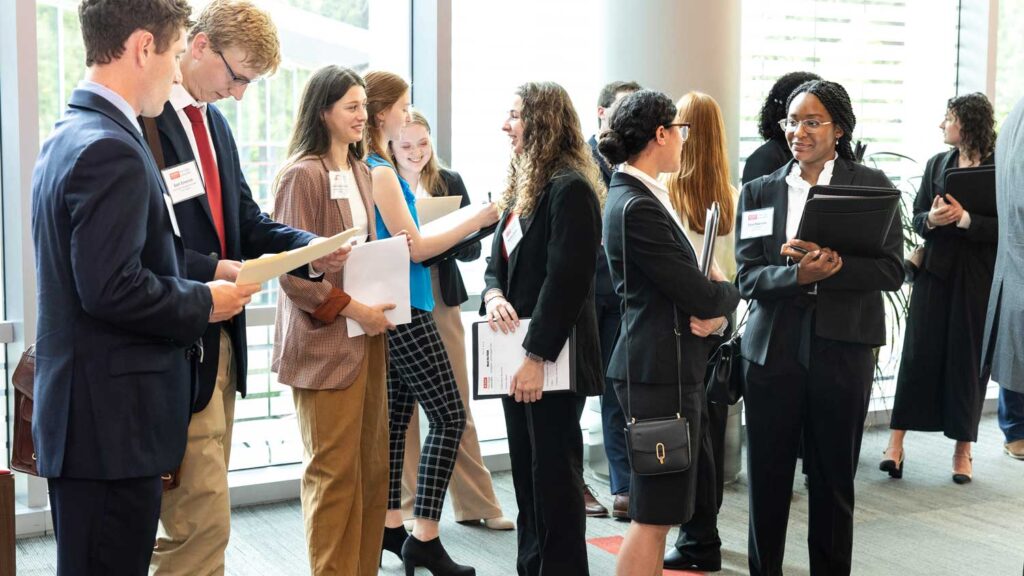
The online program is among several signature initiatives to power the program’s growth in recent years. The innovations reflect a strategic focus on providing what many students want most in their busy lives: flexibility.
Ebony Therrier, a MAC graduate this spring, embraced the online option as a student who worked full time.
“I don’t feel like I missed out on anything being online instead of on campus,” says Therrier, a physical therapist who pursued accounting to help with the business she and her husband own. She took the same courses as on-campus students and sometimes attended classes in real time with them virtually.
The online curriculum included many group activities, and Therrier enjoyed talking with classmates around the country and abroad. “I could reach out to professors by phone and text. Everyone was readily available,” she says. “I liked the communication and collaboration.”
Attracting non-accounting majors like Therrier — who has accepted an offer to be a tax associate with Grant Thornton in Charlotte — has been a huge success — for students and the MAC program.
“What I give the most credit to for our increased enrollment is that we changed the pond we’re fishing in. We made it bigger,” Showalter says. “The bigger number of students enriches what’s going on in the program. Students are less homogenous.”
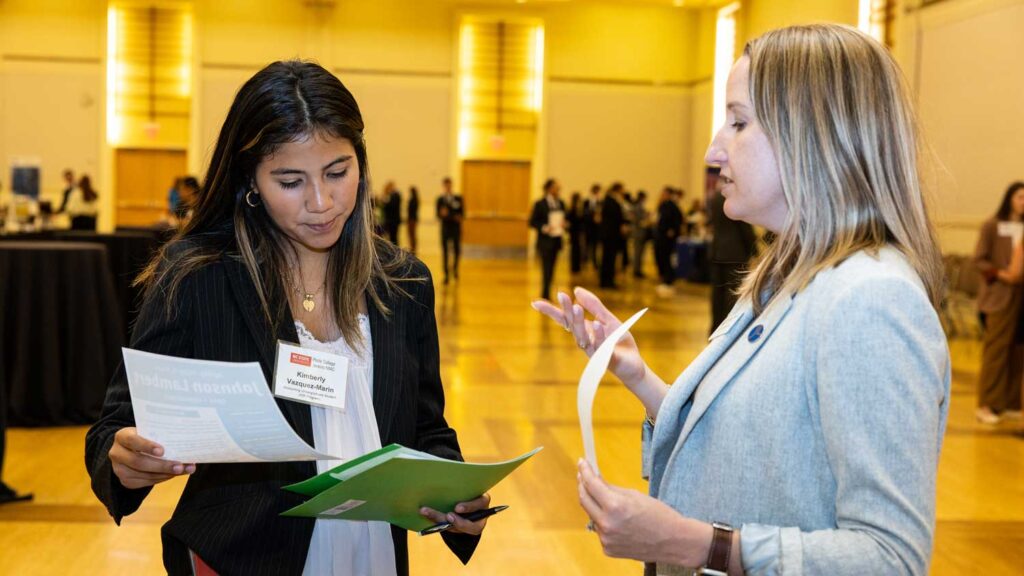
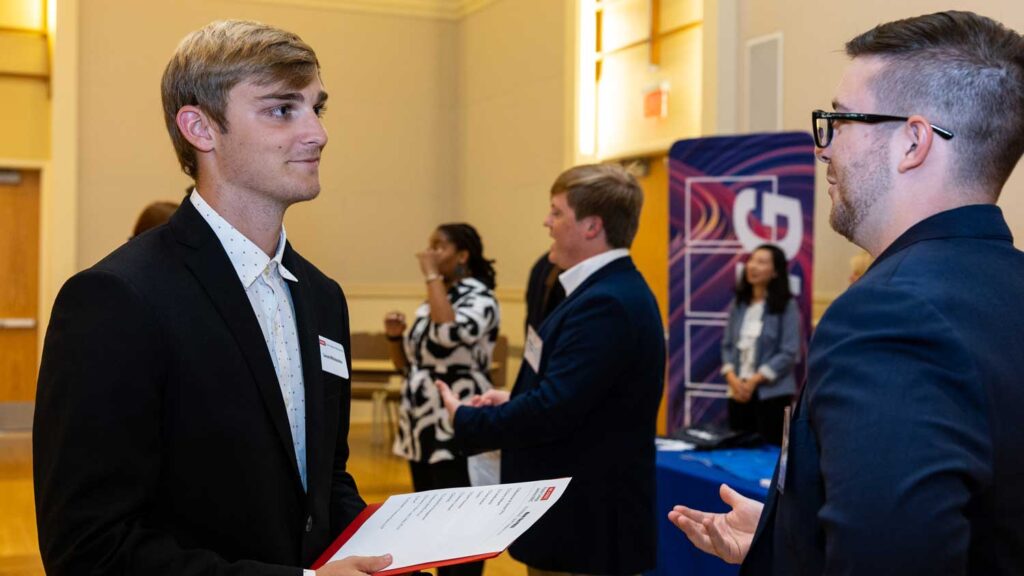
MAC’s online ASAP program also draws from a larger — and more diverse — pool of students. ASAP allows eligible students with non-accounting undergraduate majors to take foundational required courses to prepare for the MAC program. In the Accelerated Bachelor’s/Master’s Degree program, undergraduates take MAC courses to earn both of their degrees sooner.
About 40 percent of the students in this fall’s incoming class represent non-accounting backgrounds.
Employers appreciate a more well-rounded group of accounting graduates to consider, which raises Poole’s profile during company recruiting seasons.
Another draw for employers is the caliber of Jenkins MAC graduates. That quality is enhanced by a career services team that focuses solely on the MAC program and helps students find positions that fit their skills and interests. “That’s why employers come back here to recruit. If they have a better match with a new employee to begin with, the employee is more likely to stay longer,” Showalter says.
Nearly all students have accepted a job offer before they graduate. Showalter’s program has relationships with about 35 employers. “We’re one of their top schools for recruiting,” he says.
From the Archive
Innovating and Evolving
Therrier was impressed by the MAC career services team, which organizes job fairs and helps students with resumes, interview practice, evaluating job offers and other job-search aspects. Even after graduation, they gave her guidance. “It’s an ongoing thing. You’re just a part of the NC State MAC program,” she says.
With admissions and other MAC staff, too, “The behind-the-scenes administration makes everything work well. The support that was provided was amazing,” Therrier says.
The attentiveness to students is reflected in MAC’s mentorship program, which matches each student with a professor, an uncommon setup among business schools, notes Showalter, MAC director since 2018.
Celebrations Over the Years
Another unusual Jenkins MAC innovation is the option of two academic tracks for students: the more traditional route of public accounting and a business and industry path, popular with many students without an accounting background.
Over the years, women — with and without accounting experience — have comprised more and more of Poole’s MAC enrollment: in the class of 2024, 72 percent of online students and 52 percent of on-campus students.
Krawczyk, a rare woman in the field when she entered it in 1981, has monitored the demographic change.
Particularly as accounting has become more people-oriented in the past 20 years, it plays to many women’s strengths in relating to clients. “It’s a field that women do very well in…and it’s much more appealing to them,” Krawczyk says. “We’re no longer cutting off a group of very intelligent people who can do a good job in the profession.”
And more women are leaders in the industry. Although the percentage is still low, nationally 39 percent of accounting firm partners are women, she notes.
In addition to teaching the nuts and bolts of the profession, the MAC program has beefed up its courses in critical thinking and analysis, research and writing to produce more versatile graduates for the workplace.
“What I’m proudest of is the caliber of students who are coming in and going out. They’re the whole package now. Our students are recognized by recruiters as being primo hires.”
–Kathy Krawczyk
“We spend a lot of time on soft skills, the skills they need to really succeed,” Krawczyk says. “What I’m proudest of is the caliber of students who are coming in and going out. They’re the whole package now. Our students are recognized by recruiters as being primo hires.”
Showalter aims to keep it that way.
That means always looking ahead to the next innovation to keep on track with market trends and to produce graduates prepared to be competitive in a changing workplace.
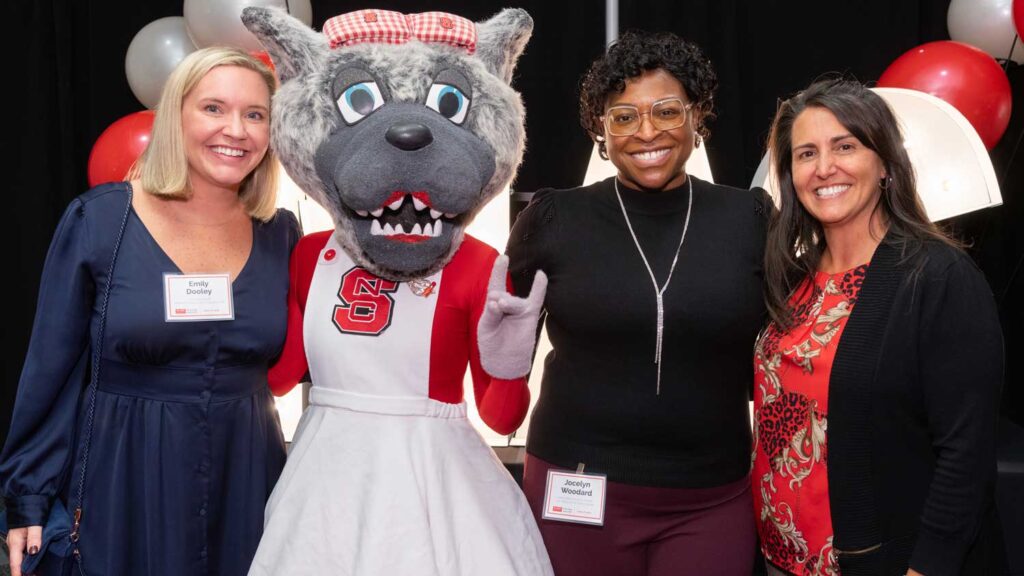
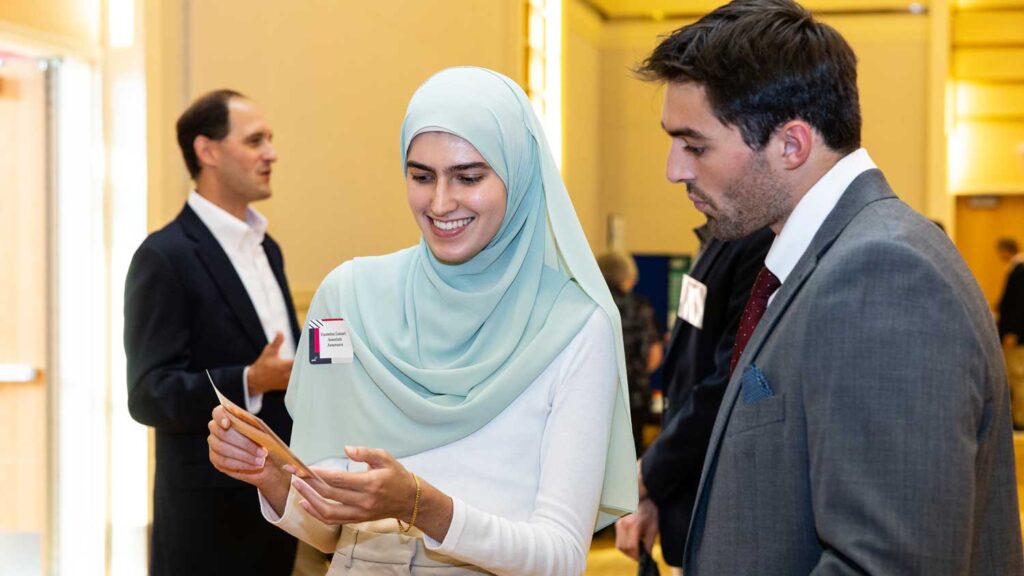
“A lot of our time as an administrative team is spent on where we need to be moving the program to. We’re always looking at innovative and new ways, the way we think the industry’s going,” Showalter says.
Data analytics is now incorporated into the MAC curriculum, and Showalter’s team is discussing how to integrate the quickly evolving realm of AI into the classroom, so students can gain skills they need to use that technology.
‘It’s Like a Family’
“Back when I got my accounting degree, people said, ‘You are set for life.’ But now, going forward, education will be consumed over a period of years,” Showalter says.
It’s not just content that’s critical in higher education. The method of delivery also is crucial in an environment of lifelong learning. With many students juggling jobs and families while they pursue education, certificates and other credentials are increasingly popular alternatives to degrees.
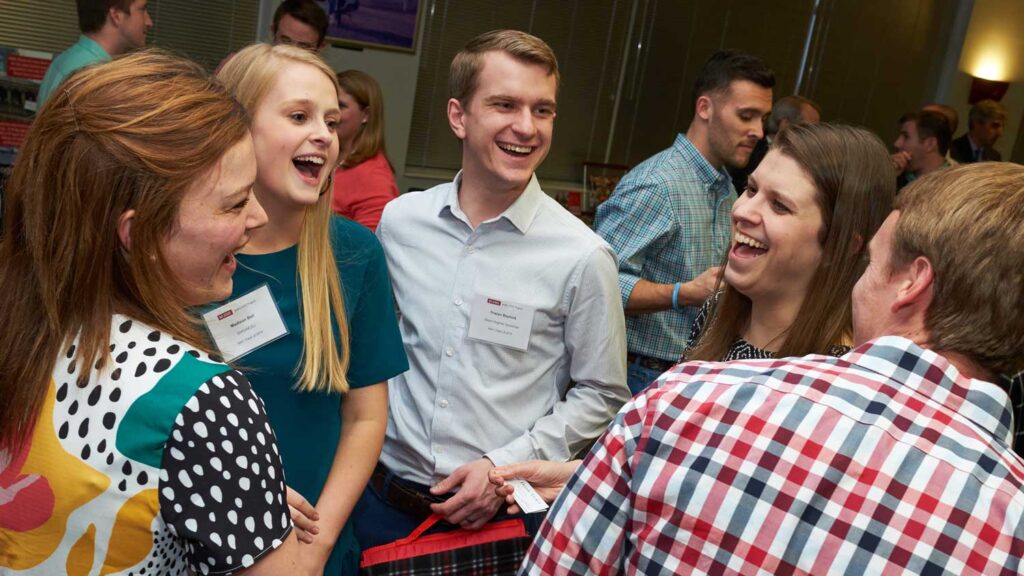
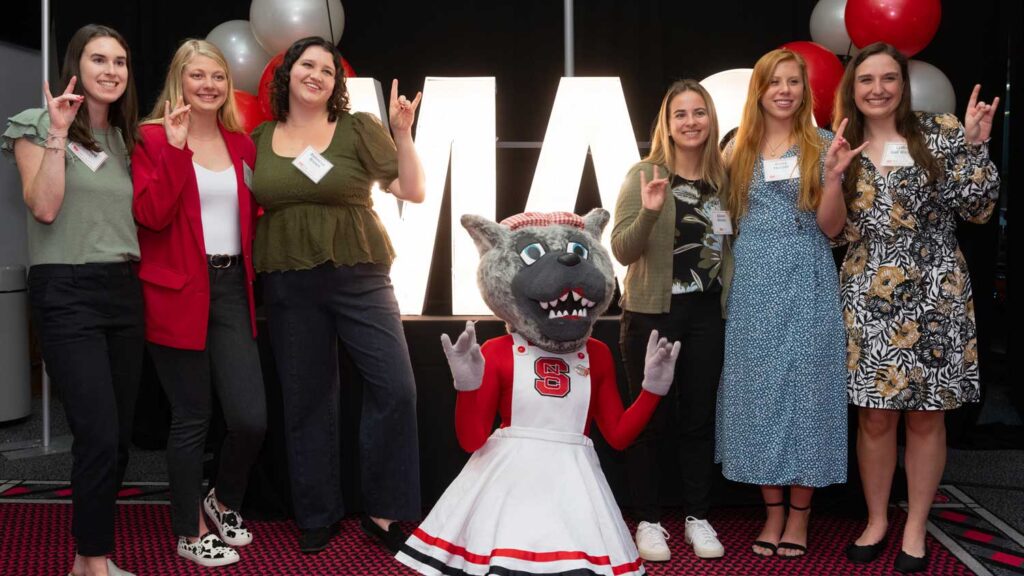
MAC’s Lifelong Learning Programs series, in collaboration with NC State Executive Education, offers virtual summer sessions and an annual summit to MAC alumni and other professionals. Attendees can earn Continuing Professional Education credits to support career development.
“We need to think about how we’re delivering the knowledge they need in digestible bits,” Showalter says. “It has to be provided in a way that they can consume it with all the other things going on in their lives.”
As a single mother who also has a job, MAC student Jenniffer Lozano Rodriguez has a lot going on in her life. She cites the support from the program’s staff and faculty, and the scholarship aid they helped her find, as particularly valuable.
“I feel like it’s my home. The professors
and others around us really care about us.”
–Lozano Rodriguez
“I feel like it’s my home. The professors and others around us really care about us,” says Lozano Rodriguez, who moved to North Carolina, where she has relatives, from her native Colombia. “They want to help you accomplish your goals. It’s very cool, like a family.”
Krawczyk has email addresses for about 2,400 of the 2,550 alumni in the “family.” Many graduates stay connected with her and with the MAC program more broadly in various ways.
One of them is 2020 graduate Justine James, a senior associate with PricewaterhouseCoopers in Tampa, Florida.
“The standard they held us to at Poole was very high. It was a rigorous program. At the time I started work, I felt very prepared,” says James, who was promoted at work soon after she started there.
For two years after she graduated, she mentored several MAC students to help them transition into the program. She supported them in navigating project management, balancing priorities and developing study habits. “I loved the program,” James says. “Giving back in that way seemed like an awesome opportunity to help others reach their full potential.”
“We provide much more than knowledge.
We transform students because we’ve taught them how to think critically.
We’re helping to prepare them for the
rest of their lives.”
–Scott Showalter
Guiding students to their full potential is the MAC program’s ultimate goal — and one of its consistent achievements. In that process, seeing students stretch and grow is Showalter’s main reward and motivation.
“Our graduation ceremony is very emotional. We are witnessing the end of one journey and the beginning of exciting careers,” he says. “We provide much more than knowledge. We transform students because we’ve taught them how to think critically. We tell students we’re helping to prepare them for the rest of their lives.”
More from Poole Business: Fall 2024
See all in current issue- Categories:

